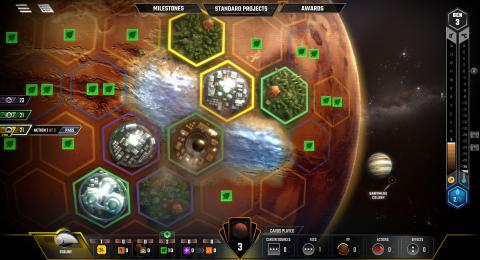
PopCap Games and The Games for Health Project announced a unique effort to gather, evaluate and share research on the use of digital games and cognitive health. The jointly funded effort will result in a publicly available knowledge-base summarizing both the research and market development activities associated with the possible use of digital games for maintaining healthy minds. Initial findings will be made available in early Spring 2006.
We know from basic research that active minds are more often healthy minds, especially as people age, said Ben Sawyer, co-founder and director of the Games for Health Project. We know good games activate minds. What we don't know, and what hope to learn in the course of this research, is exactly what the role of digital games is or could be in the future, in helping people maintain healthy minds. The goal of this effort is to establish a baseline of knowledge - you'd think it exists but it really doesn't. PopCap's support is going to help us accelerate our activity to get a handle on this as a benefit to the entire field of games and games for health.
With an increasingly aging population in many developed countries the field of cognitive exercise is growing. Advocates of cognitive exercise say it is equally important for people to exercise their minds as well as their bodies. In Japan, a series of popular brain exercise games for Nintendo's DS platform have been major commercial successes. In the U.S. several companies offer mental workout products. However, it's not clear what's good and what isn't or how or whether existing underlying scientific research has been effectively applied.
We have heard from many customers that they use our games for 'mental workouts' or 'brain exercise' but we're not even sure what that means or if it's even relevant,It may be true, it may not, it may require special types of games and/or other supporting activities or regimens. When our customers are claiming an exciting new use for our games we're interested in understanding it better. By partnering with the Games for Health Project we'll gain access to existing data and the emerging conduit for partnerships between healthcare researchers and game companies. Our plan is to share this work with everyone so we all have the same baseline from which we can inform ourselves and our customers - and perhaps build even better, more beneficial, games.
The goal of the work is only to summarize past and present efforts. It is not designed to test the validity of any specific game (PopCap's or otherwise) for which there is no actual body of existing research. The project may also look at existing public perceptions of cognitive exercise and expert opinions on whether digital games offer any specific comparative advantages over other sources of cognitive exercise.
The project will run several months during which contributors to the Games for Health Project working with research advisors will scour research, interview experts in the field, and examine current products. This work will be compiled into a knowledgebase and a summary report will be developed and presented at upcoming game conferences starting in the Spring of 2006, as well as made public on the Games for Health web site.
If games can indeed play a role in cognitive health, it will be games like PopCap's that have the potential to have a significant impact, noted Ben Sawyer. Such games must be broadly popular, accessible in every sense of the word, and easy to learn. PopCap's interest in funding this effort and making the results available to everyone is a generous gesture in a very competitive field.
Games for Health is a project produced by The Serious Games Initiative, a Woodrow Wilson International Center for Scholars effort that applies games and game technologies to a range of public and private policy, leadership, and management issues. The Project is funded by the Robert Wood Johnson Foundation.
The Initiative founded Games for Health to develop a community and best practices platform for games being built for health care applications. To date the project has brought together researchers, medical professionals, and game developers to share information about the impact games and game technologies can have on health care and policy. This includes an effort to catalog the current use of games in health care. For more information about Games for Health, follow the download tab above.








